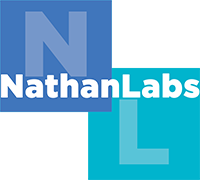
NATHAN LAB
Open Source Scanning Oss
- Open-source scanning is the term for the security procedures intended to lessen the dangers posed by open-source software.
- Open-source computing solutions, however free or inexpensive, may come with less security guarantee by default.
- In order to find vulnerabilities, reduce risks, and adhere to open-source best practises and standards, OSS scanning typically includes file system and open-source component scanning.
- To find vulnerabilities in apps, networks, and databases, open-source vulnerability scanners are employed in open-source security scanning. Open-source licences are frequently used to make OSS scan tools available for free, allowing for their unrestricted modification and development.
- As a result, businesses can modify open-source vulnerability scanners for internal usage or modify other tools to suit their own requirements. Companies can benefit from the collaborative efforts of the open-source community to keep these technologies viable against recently emerging threats.
- Several commercial products are compatible with open-source technologies, and many enterprise goods and services have infrastructure optimisations that are fully or largely open source.
Why open-source scanning is very important?
- Many businesses augment internally produced applications using open-source software, operating systems, or containers.
- Everyone who employs open-source functionality should incorporate an open-source vulnerability scanner, regardless of how open-source packages are used in the development and deployment of applications.
- Development and security teams can find security flaws in open-source software before hackers and other cybercriminals can take advantage of them.
- Companies must assume responsibility for the integrity of open-source components in accordance with security best practises. Unknown flaws put users at unnecessary risk for data theft, programme corruption, and denial-of-service assaults.
- Open-source vulnerability scanning should become normal practise for businesses when developing and distributing applications.
- Nathan Labs is at the forefront of innovation, offering open source quantum computing solutions and cutting-edge open source scanning, including an open source vulnerability scanner (OSV scanner). Harness the power of open source technology with our expert guidance and comprehensive solutions.
What people say
We have received tons of awesome testimonials
Our Certifications
Nathan Labs holds certifications including ai-chatbox Lead Auditor, ISO 9000 Lead Auditor, and Qualified Security Assessor (QSA). Our expertise includes the gap assessment against the ai-chatbox standard and the implementation of the information security policies that help organizations get their ai-chatbox certification.










Speak with our experts for a free consult
📞 Call NowFaq
Frequently Asked Questions
Open-source scanning is a security practice that aims to reduce risks associated with open-source software. While open source is cost-effective, it may have security vulnerabilities. Scanning helps find vulnerabilities, reduce risks, and ensure compliance with best practices.
Open-source scanning involves file system and open-source component scanning. Vulnerability scanners are used to find vulnerabilities in apps, networks, and databases. These scanners are often available as open-source tools, enabling modification and development by businesses.
Businesses often use open-source components in their applications and infrastructure. Open-source scanning helps identify security flaws before cybercriminals exploit them. It's crucial for data protection, program integrity, and preventing cyberattacks.
Businesses can benefit by proactively identifying and addressing security flaws, reducing the risk of data breaches, program corruption, and denial-of-service attacks. It ensures the integrity of open-source components, enhancing overall security.
Penetration Testing assesses system resilience by probing vulnerabilities from different entry points and system functions. NathanLabs' tests reveal weaknesses and allow clients to strengthen their security measures.
Yes, open-source scanning is relevant for all businesses that use open-source components. Whether for internal apps, development, or deployment, it's a critical security practice.
Yes, open-source vulnerability scanners can be modified and adapted to meet specific business requirements. Companies can leverage the collaborative efforts of the open-source community to enhance these tools against emerging threats.



